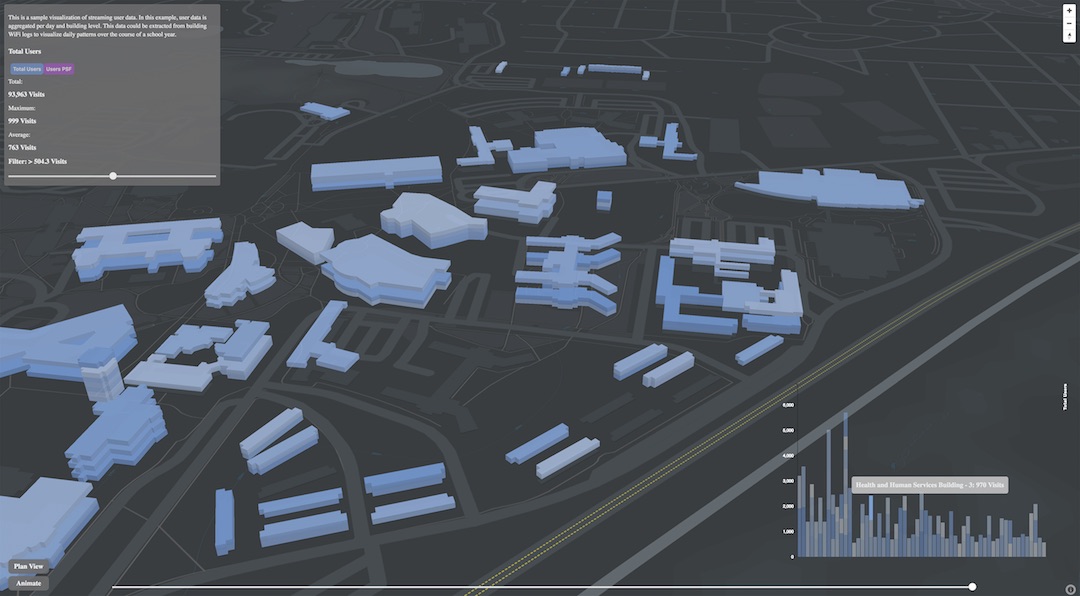Tip of the spear. Cutting edge. Vanguard. These are not words anyone would associate with the construction industry. And when it comes to the nascent technology of artificial intelligence, the construction industry is right near the bottom for both current and future AI adoption.
According to a McKinsey & Company report, only the travel and tourism and professional services sectors have a lower percentage of firms adopting one or more AI technologies at scale or in a core part of their business. When it comes to the average estimated percentage change in AI spending over the next three years, it only gets worse for the construction industry: it’s dead last.
Being last isn’t always such a bad thing, however. Just like how the youngest child gets to watch their older siblings grow up and learn from their mistakes and capitalize on their successes, the construction industry can look at how other industries are leveraging AI, what works and what doesn’t, and take the fast-track to AI dominance.
The McKinsey report identified five current AI applications being used by other industries that could cause an immediate impact in the construction sector:
• Transportation route optimization algorithms for project planning optimization
• Pharmaceutical outcomes prediction for constructability issues
• Retail supply chain optimization for materials and inventory management
• Robotics for modular or prefabrication construction and 3D printing
• Healthcare image recognition for risk and safety management.
In each of these instances, the construction sector would benefit from the work other industries and sectors are putting in to develop the technology. All construction firms would have to do is swoop in and perfect the technology for their own purposes—easier said than done, but still a better option than starting from scratch.
Related Stories
| Aug 11, 2010
New book provides energy efficiency guidance for hotels
Recommendations on achieving 30% energy savings over minimum code requirements are contained in the newly published Advanced Energy Design Guide for Highway Lodging. The energy savings guidance for design of new hotels provides a first step toward achieving a net-zero-energy building.
| Aug 11, 2010
Perkins+Will master plans Vedanta University teaching hospital in India
Working together with the Anil Agarwal Foundation, Perkins+Will developed the master plan for the Medical Precinct of a new teaching hospital in a remote section of Puri, Orissa, India. The hospital is part of an ambitious plan to develop this rural area into a global center of education and healthcare that would be on par with Harvard, Stanford, and Oxford.
| Aug 11, 2010
Burt Hill, HOK top BD+C's ranking of the nation's 100 largest university design firms
A ranking of the Top 100 University Design Firms based on Building Design+Construction's 2009 Giants 300 survey. For more Giants 300 rankings, visit http://www.BDCnetwork.com/Giants
| Aug 11, 2010
PBK, DLR Group among nation's largest K-12 school design firms, according to BD+C's Giants 300 report
A ranking of the Top 75 K-12 School Design Firms based on Building Design+Construction's 2009 Giants 300 survey. For more Giants 300 rankings, visit http://www.BDCnetwork.com/Giants
| Aug 11, 2010
Pella introduces BIM models for windows and doors
Pella Corporation now offers three-dimensional (3D) window and door models for use in Building Information Modeling (BIM) projects by architects, designers, and others looking for aesthetically correct, easy-to-use, data-rich 3D drawings.
| Aug 11, 2010
High-profit design firms invest in in-house training
Forty-three percent of high-profit architecture, engineering, and environmental consulting firms have in-house training staff, according to a study by ZweigWhite. The 2008-2009 Successful Firm Survey reports that only 36% of firms overall have in-house training staff. In addition, 52% of high-profit firms use an online training system or service.
| Aug 11, 2010
Jacobs, HDR top BD+C's ranking of the nation's 100 largest institutional building design firms
A ranking of the Top 100 Institutional Design Firms based on Building Design+Construction's 2009 Giants 300 survey. For more Giants 300 rankings, visit http://www.BDCnetwork.com/Giants
| Aug 11, 2010
Walt Disney Family Museum planned in San Francisco
Construction is under way on a new museum dedicated to the man behind the Disney empire. Set to open this fall in San Francisco, the Walt Disney Family Museum will feature 10 galleries, starting with Disney's beginnings on a Missouri farm.







